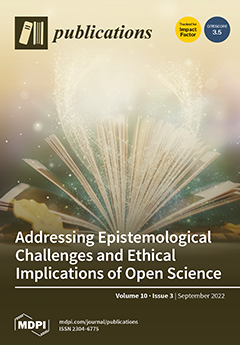Coronavirus disease 2019 (COVID-19) has been reported to affect malaria intervention strategies, the suspension of malaria elimination programs, and the publication of malaria research. We compared differences in authorship, affiliations, countries, funding sources, article types, keywords, languages, and citations between studies published before
[...] Read more.
Coronavirus disease 2019 (COVID-19) has been reported to affect malaria intervention strategies, the suspension of malaria elimination programs, and the publication of malaria research. We compared differences in authorship, affiliations, countries, funding sources, article types, keywords, languages, and citations between studies published before and during the COVID-19 pandemic. The searches were performed online using the Scopus database on 8 April 2022. The searches were limited to two periods: before the COVID-19 pandemic (2018–2019) and during the COVID-19 pandemic (2020–2021). The information of authorship, affiliations, countries, funding sources, article types, keywords, languages, and citations between studies published before and during the COVID-19 pandemic were compared using frequency and percentage. The relationships between the most productive authors, countries, affiliations, journals, and frequently used keywords were visualized using the VOSviewer (version 1.6.18) software. A total of 2965 articles were identified in two periods and, among those, 1291 relevant studies were included. There was no difference in malaria publications before and during the COVID-19 pandemic (679 articles, 52.6% vs. 612 articles, 47.4%). Compared between the two periods, the preliminary trend of malaria publications in terms of authorship, affiliations, countries, funding sources, article types, keywords, languages, and citations were different. In conclusion, the current study showed the preliminary trends in malaria publications before and during the COVID-19 pandemic. The findings of this study would encourage researchers to perform a scoping review or systematic review to better understand the direction of malaria publications during the COVID-19 pandemic.
Full article





